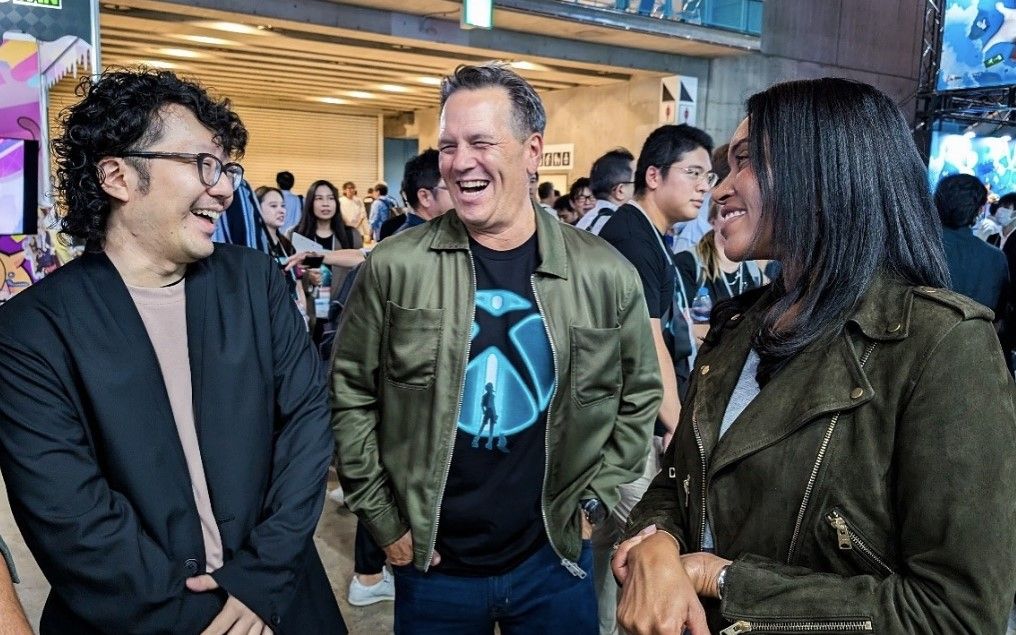gokurho
Member
Summary by chatGPT
The Windows Central article discusses Xbox's strong finish to 2024, highlighting several key developments:
1. Record-Breaking Game Releases: 'Call of Duty: Black Ops 6' achieved unprecedented success, setting records for day-one players and significantly boosting Xbox Game Pass subscriptions.
2. Increased Player Engagement: Xbox reported record user engagement on its consoles, indicating a growing and active player base.
3. Strategic Market Expansion: The company experienced substantial growth in the Asian market, achieving its highest number of console players in the region.
4. Diverse Hardware Offerings: Xbox expanded its hardware lineup with new models, including a 1TB Xbox Series S (white), a disc-less 1TB Xbox Series X (white), and a 2TB Xbox Series X "Galaxy Black Special Edition," catering to a broader range of consumer preferences.
These developments have positioned Xbox favorably as it moves into 2025.

Xbox’s big comeback: Closing 2024 with strong momentum and new hope
Call of Duty: Black Ops 6, STALKER 2, Indiana Jones, record engagement, and Xbox Game Pass success. Did anyone notice that Xbox is closing out 2024 on a bit of a roll?
 www.windowscentral.com
www.windowscentral.com
I think Microsoft will be monitoring how Call of Duty Xbox Game Pass players behave in the coming months, because ultimately, if 100% of those players buy a month's worth of Xbox Game Pass, purchase zero microtransactions, and then bounce out of the game — it would perhaps hit the game's bottom line on Xbox's own ecosystem. However, it's unlikely that will be the case.
So far, there's absolutely no reason to think some of the "doom and gloom" apocalyptic Call of Duty Game Pass scenarios will materialize beyond angry social media discourse — indeed, from what my sources tell me, Xbox's ecosystem is currently the lead platform for Call of Duty Black Ops 6 engagement, despite also seeing massive growth on PlayStation and Steam
Further questions over Xbox's strategy don't seem to have disuaded developers from supporting team green, as evidenced by a variety of fresh third-party support throughout the summer and into the fall
I wrote an article decrying Capcom for opting against bringing its classic fighting game collections to Xbox, despite the fact many of them launched on the OG Xbox or Xbox 360. The discourse immediately shifted to questions over whether or not developers were arbitrarily skipping Xbox, due to a perceived lack of engagement or users. After doing some digging, I discovered some of the ports were being held back by technical reasons, a fact Capcom itself confirmed when it revealed that it is bringing their classic games to Xbox.
It feels like Xbox has been working tirelessly to ensure that Xbox customers aren't treated as second class citizens by major third-party publishers, and the work seems to be paying off in droves. Almost soon as I'd penned an article blasting Microsoft for failing to land Genshin Impact — Genshin Impact was announced for Xbox. I wrote previously my frustrations on Square Enix not supporting Xbox with its nostalgic Final Fantasy franchise, and we've seen Final Fantasy Pixel Remasters hit Xbox consoles, and a confirmation that Final Fantasy 16 is on the way for Xbox too.
I would say that Xbox is still regarded as a platform that has weaker exclusive games than its competitors, Nintendo and PlayStation both. That seemingly hasn't stopped the console from enjoying "record" engagement, despite a decrease in new players entering the ecosystem in favor of PC and smart devices. Indeed, PlayStation and Nintendo both reported year over year console hardware sales declines. The traditional console market has hit a saturation point ahead of what will likely be the slow roll-out of a new generation with the Nintendo Switch 2 in 2025, with the possibility of an Xbox handheld on the horizon as well.
A lot of the fear and confusion around Xbox's platform has revolved around confidence in its hardware range. While some were certainly more tribalistic in their anger about Xbox putting its games onto PlayStation, there's a cold logic to the idea that if fewer people find the hardware compelling, fewer developers will make games, meaning fewer people will buy hardware — a death spiral, much like Windows Phone endured in the past. So far, however, there's no evidence to suggest any of this is taking place. Xbox console platforms have enjoyed record user engagement, year-over-year increases in transactions for third-party published games, and improved interest from major publishers that previously felt content to sit on PlayStation and other competing platforms. If Xbox wasn't in the game, we most certainly wouldn't be seeing Genshin Impact, Final Fantasy, and Death Stranding come across to the platform.



Last edited:












